Racial Justice and Health Equity
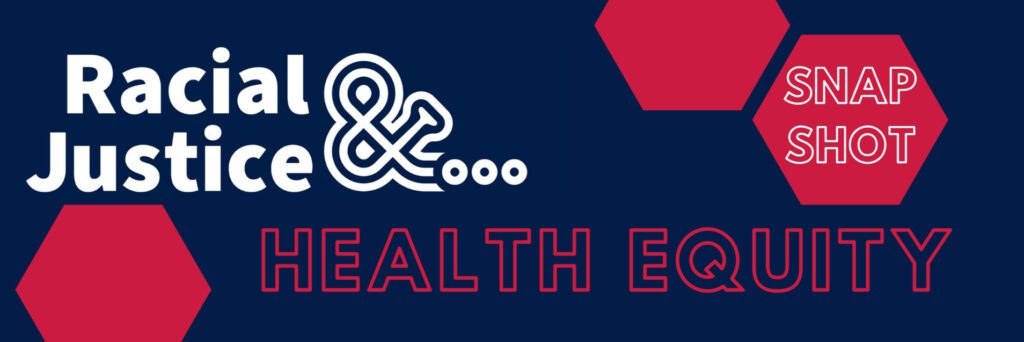
In case you missed it, we hosted the third session in our Racial Justice &… Series earlier this week! Huge thanks to everyone that joined the call, and to Drew, Hibo, Sarah, Mohammed and Samaa, for wrapping up part one of this series on such a high note!
You can watch the recorded discussion below, or read through to catch some of the highlights and action items from these inspiring panelists. **We’ll be hosting Part 2 of the series early in the new year!**
Panelist Highlights
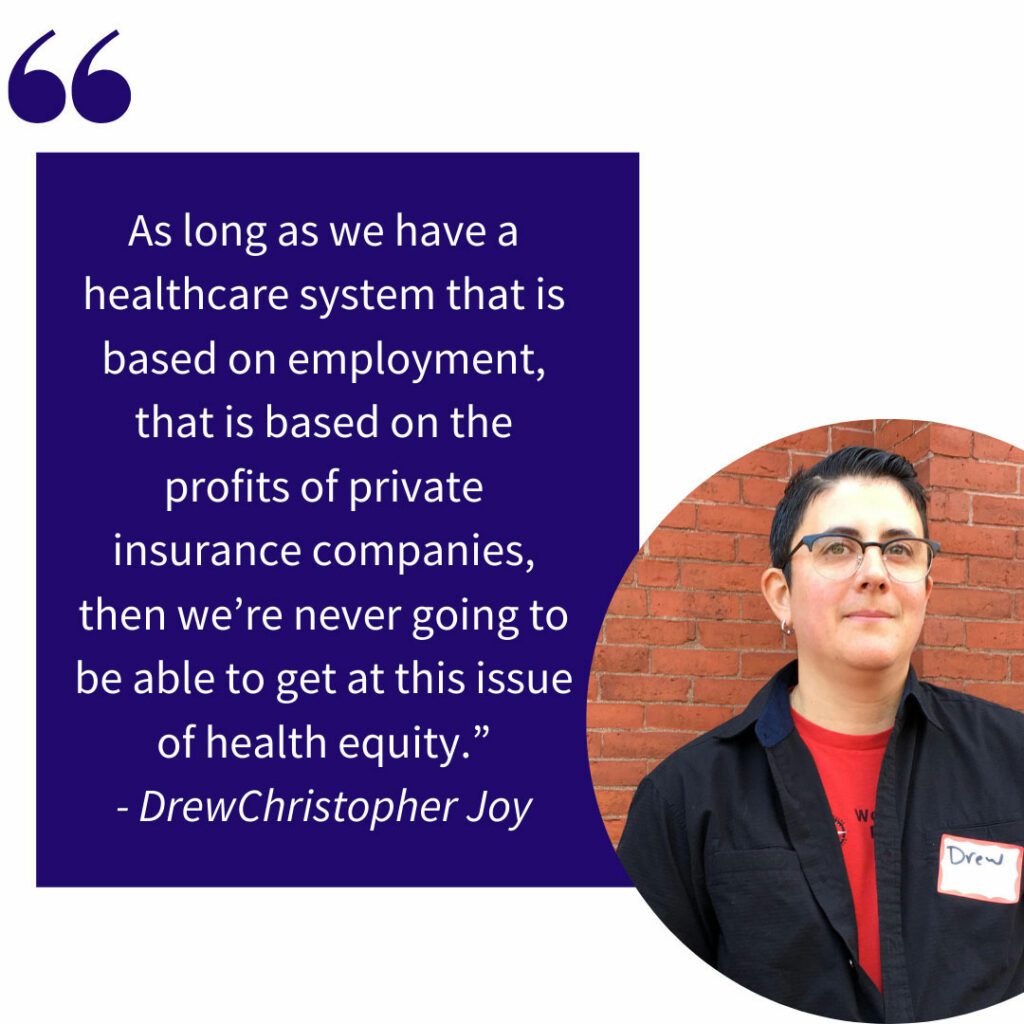
DrewChristopher Joy, Southern Maine Workers’ Center
Drew shed light on the consequences of our healthcare system being tied to employment. Mass unemployment has led to many people losing their healthcare coverage at a time when they need it most. The Southern Maine Workers’ Center’s Workers Support Hotline has seen a dramatic uptick in requests for services, as community members navigate the impact of COVID with their employers. Many of these folks are frontline workers, whose employers don’t offer healthcare at all. Frontline workers are also disproportionately immigrant workers, Black workers, and Latinx workers. In response, SMWC delivered a letter to Governor Mills in May calling for more healthcare coverage for Mainers during this crisis.
What you can do:
- Donate to organizations like the Southern Maine Workers’ Center and join their Healthcare is a Human Right Committee to organize for an equitable and universal healthcare system in Maine.
- Share the Workers Support Hotline with anyone you know who may be dealing with a workplace issue.
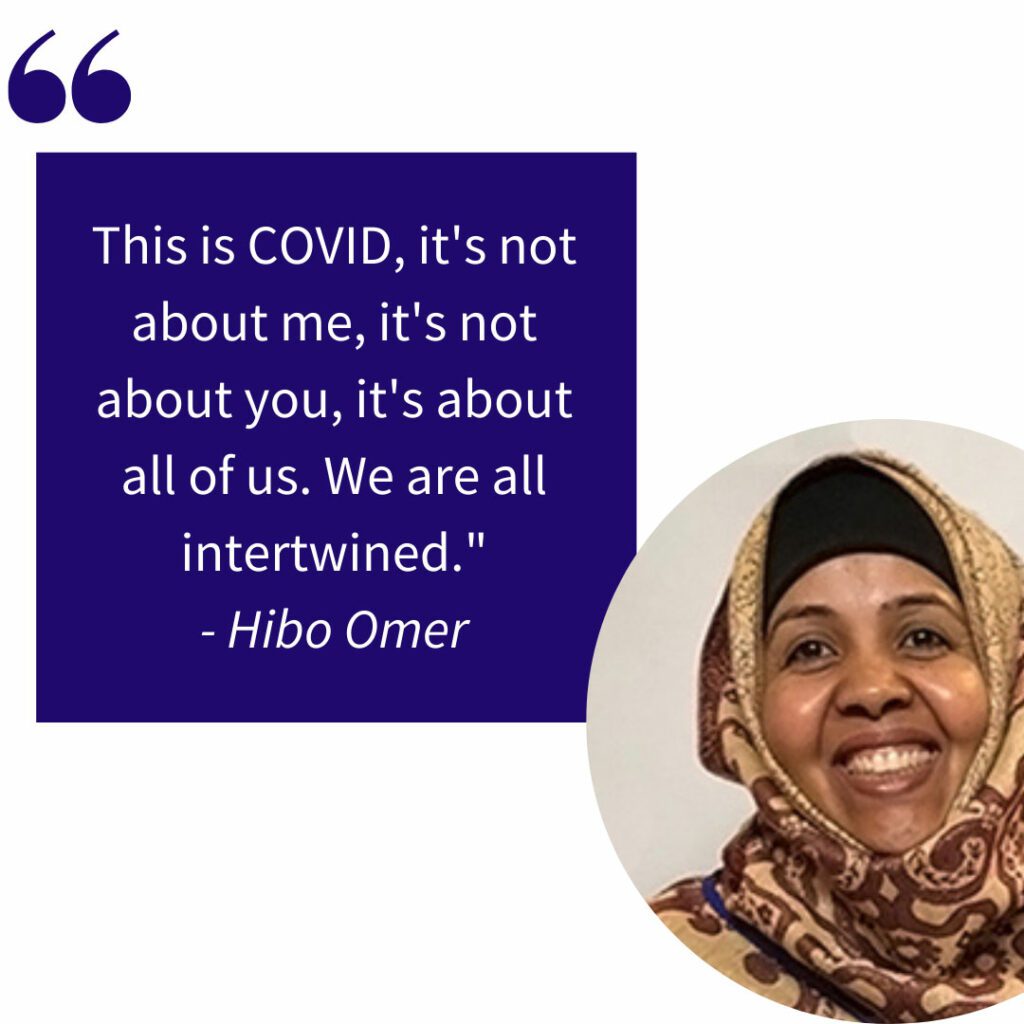
Hibo Omer, New Mainers Public Health Initiative
Hibo discussed the critical work that New Mainers Public Health Initiative (NMPHI) is doing to serve Lewiston’s immigrant communities and provided insight into the racialized consequences of an inequitable healthcare system. For example, the ongoing issue of lead poisoning in Lewiston continues to disproportionately impact immigrant youth. Hibo also discussed the ways in which NMPHI has had to quickly adapt to the pandemic, describing it as “shooting while you’re aiming to shoot.” In addition to their on the ground public health work, NMPHI advocated for the state to release data based on race for COVID-19 early on in the pandemic to address predicted (and later proven) racial disparities.
What you can do:
- Donate to organizations like New Mainers Public Health Initiative.
- Support small community-based organizations in your area.
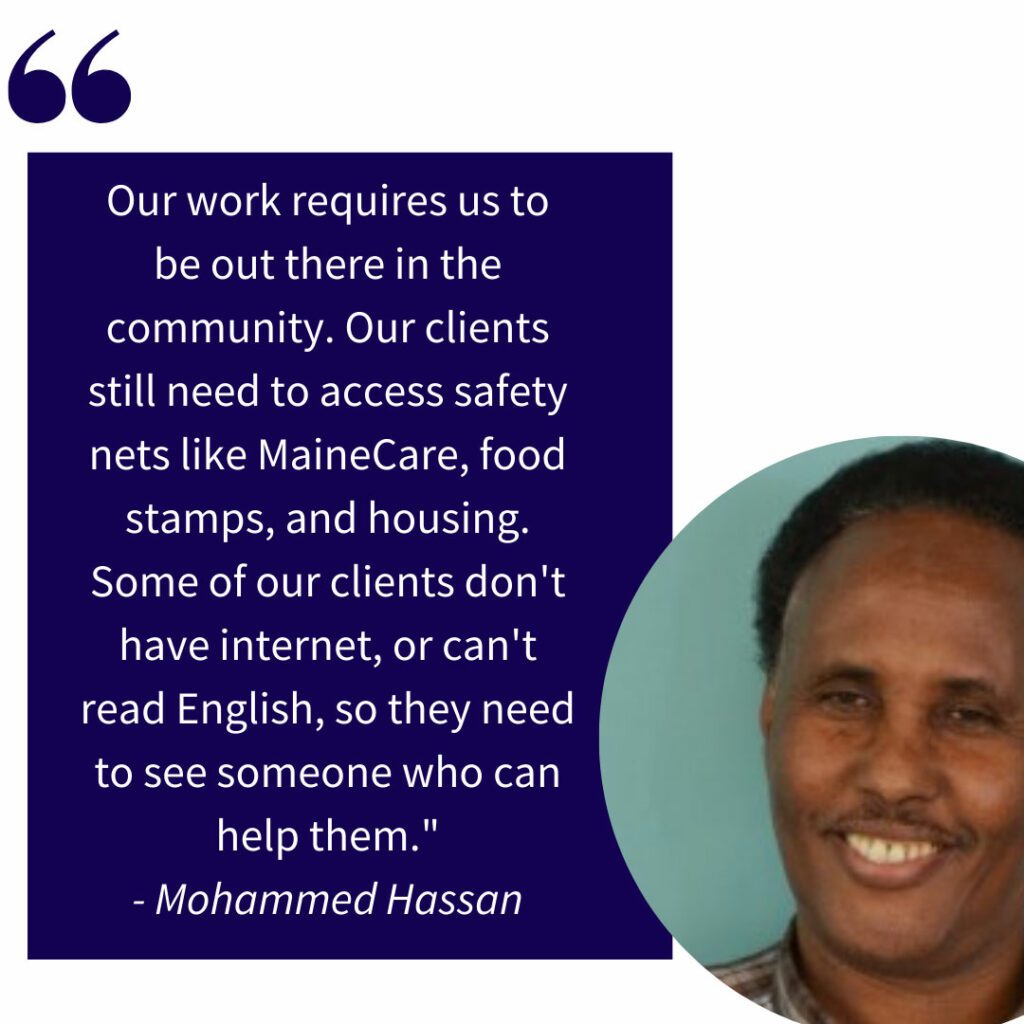
Mohammed Hassan, Maine Access Immigrant Network (MAIN)
Mohammed gave an overview of Maine Access Immigrant Network (MAIN), and demonstrated how vital
Community Health Workers are for immigrant communities. Throughout the pandemic, they’ve taken safety precautions to continue providing in-person support and outreach for their clients, who otherwise may not have access to the care and resources that they need. MAIN provides a critical support system for immigrants and their families, as they navigate the complexities of the healthcare system and other social services during this public health crisis.
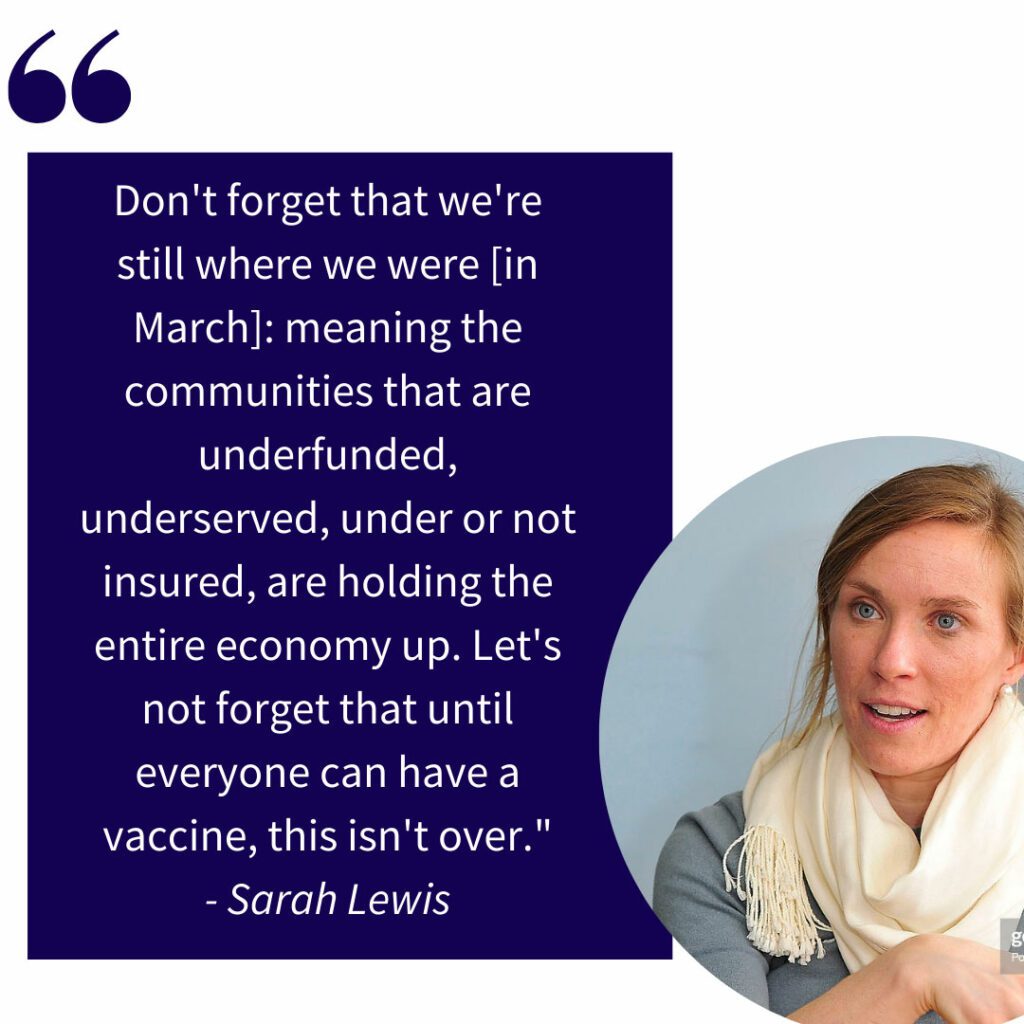
Sarah Lewis, Maine Access Immigrant Network (MAIN)
Sarah explained that when the state makes cuts to social services, community-based organizations are left to pick up the slack. Organizations like Maine Access Immigrant Network (MAIN) have been filling the gaps in our healthcare system for years, and that has only been exacerbated by this pandemic. She used contact-tracing as a prime example: where the state doesn’t have the capacity to manage proper contact-tracing strategies that burden ultimately falls on organizations like MAIN. However, Sarah explained that this dynamic has contributed to MAIN’s ability to be adaptable, resourceful, and nimble. She called on state officials to learn from, trust, and directly support community-based and immigrant-led organizations responding to this pandemic.
What you can do:
- Donate to organizations like Maine Access Immigrant Network.
- Call on state officials to partner with, and directly support community-based and immigrant-led organizations addressing the impact of this pandemic.
Health Equity Resource List
- Southern Maine Workers’ Center’s “Enough for All: Healthcare is a Human Right Report”
- Maine’s Paid Time Off Law
- Article: “Leaders Call Mills Administration to Address Pandemics Racial Disparities”
- Article: “Maine Has Nations Worst COVID-19 Racial Disparity”
Coming Soon: Racial Justice &… Series PART 2
Wow! We had such awesome turn out and support for these past three sessions on decarceration, housing justice, and health equity. We’re excited to launch PART 2 of the Racial Justice &… Series sometime in February. In the meantime, we encourage you to watch and share the videos with your friends and family. More soon!